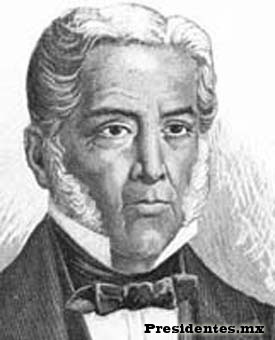Chapter 1: A nation on debt and war.
After the Reform War, Mexico had debts to the the United Kingdom, France and Spain. The Mexican Government, led by Benito Juárez, suspended loan payments to foreign countries on July 17th 1861. In response, the governments of France, the United Kingdom and Spain arranged a meeting in order to address a course of action towards obtaining loan repayments from Mexico.
From September 23rd 1861, diplomats of the three nations began at London, capital of the United Kingdom. Francisco Javier de Istúriz y Montero assisted on behalf of the Kingdom of Spain, while Earl John Russell represented the United Kingdom and comte Charles Joseph was sent by the Second French Empire. The three powers agreed to invade Mexico and replace its government with an European-friendly regime. The issue of the American Civil War was briefly discussed and delayed until the three powers gained a foothold over Mexico. On October 31st 1861, Queen Victoria I of the United Kingdom, Emperor Napoleon III of France and Queen Isabella II of Spain signed the Pact of London, a military alliance between the three powers with the goal of securing their influence on the New World.
Between December 8th and December 17th 1861, Spanish, French and British troops landed at Veracruz, wanting to pressure the Mexicans into paying their debts. On December 17th, the Spanish fleet seized the San Juan de Ulúa and the city of Veracruz. The armies of the Pact of London then went on to seize Orizaba, Cordoba and Tehuacán. The French fleet seized the city of Campeche on February 27th 1862. After the French Army arrived at the American continent on March 5th, the forces of the Pact of London wanted to secure the coastal areas before advancing towards the interior.
As the invading forces were achieving victories over the Mexican Army, the popularity of Juárez’s Government fell. The Mexican Parliament tried to impeach Benito Juárez, but Juárez won by one single vote (52 to 51). Juárez’s Government tried to negotiate with the invading government, as Manuel Doblado, Minister of Foreign Affairs kept in contact with French, British and Spanish diplomats. At the end, negotiations between the Mexican Government and the Western Powers failed, as the Western Powers had other plans for Mexico.
Thus, on May 2nd 1862, French forces under Charles de Lorencez and Spanish troops under command of Juan Prim led an attack on Puebla. The Mexican Army, led by Ignacio de Zaragoza, was harshly defeated. The Mexican defeat at Puebla let the invading forces at 100 kilometers from the capital, Mexico City. The French leadership wanted to attack Mexico City next, but the British and Spanish decided to wait and secure their territory. Between May and September of 1862, the forces of the Pact of London took Southern Mexico and most of Central Mexico. It was at this time that the Second London Convention took place.
The Pact of London had the intention of installing a Mexican regime friendly to Europe, and considered installing a constitutional monarchy. Queen Isabella II of Spain wanted one of her daughters as Empress of Mexico, but the French refused. The British considered Ferdinand of Saxe-Coburg-Gotha, who had previously been King Consort and Regent of Portugal, but the Spanish and French refused it. The chosen was the Archduke Maximilian of Austria. Maximilian, like the Mexican people, was catholic, was young, his brother was Emperor of Austria and had children, was rather liberal and him as Emperor of Mexico could reconcile France and Austria and bring Austria’s support in the war. Maximilian, along with his brother Emperor Franz Joseph I of Austria, agreed to the plan.
Having the perfect candidate for the Mexican throne, the armies of the Pact of London headed from Puebla to Mexico City on September 15th 1862, marching through the Mexican capital on September 20th 1862. The night before the takeover of Mexico City, Benito Juárez fled the capital and went to Chihuahua, along with his cabinet. Archduke Maximilian, along with 5,000 men, arrived to Veracruz on December 12. Maximilian laid down all his claims to the Austrian throne and was crowned Maximilian I, Emperor of Mexico, the night of December 25 1862. The Mexican conservatives, along with the Church, recognized him as Emperor, while the liberals continued fighting.
After a year of fighting, the Pact of London had achieved the proposed goals of the Convention celebrated months prior to the war. But the war still raged on. But France, Spain and Britain wanted to make sure Maximilian I remained on his throne, they knew they had to finish off Juárez’s Government, that had fled to Chihuahua after the fall of Mexico City, but most importantly, the Pact of London really needed was to make sure the United States wouldn’t intervene in the conflict, as the Invasion of Mexico was a clear violation of the Monroe Doctrine.
---------------------------------------------------------------------------------------------------------------------
This is the first chapter of my TL “Crumble of America”. The POD, which is in this chapter, is that Britain and Spain agree to make Mexico into a puppet state. Thus, the French Intervention of Mexico (I need another name for this conflict ITTL, if anyone could give my one) is far more successful. Please tell me your impressions on this. I want to continue, but first I want to see if anyone is actually reading (and liking) it.

